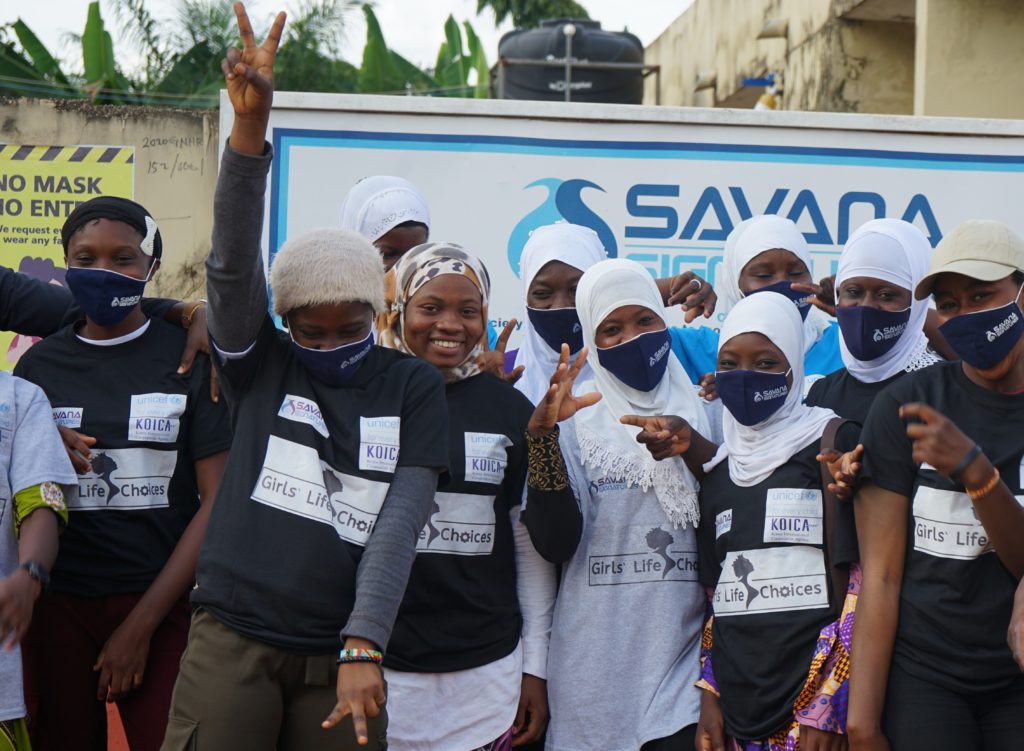Combating Teenage Pregnancy, STIs , SGBV & Child Marriages

Youth constitute a larger percentage of Ghana’s population as reported by the 2010 Population and Housing Census. Though they form the valuable human resource for Ghana’s socio-economic development, they are exposed to physical, social and reproductive health challenges and risks. Any attempt to address these challenges requires sustained and carefully thought-out interventions that are tailored to the peculiar needs of the youth.
Precisely, the needs and challenges of the youth should attract attention as a matter of national and development agencies priority.
In line with this, the Youth Empowerment Project (YEP) implemented by Savana Signatures with support from UNESCO, in the Central and South Tongu Districts in the Volta Region of Ghana, has been scaled up to 36 schools (6 existing schools and 30 new schools) and has trained 72 teachers to educate and support adolescents on making effective and informed decisions regarding their reproductive health and also gender-based violence.
The scale-up of the project is to sustain the gains of the project and to reach out to more schools that are experiencing a spike in Child Marriages, teenage pregnancy, Sexually Transmitted Infections (STIs) including HIV/AIDS and Sexual and Gender-Based Violence (SGBV).
Achievement
The project true to its goal; to introduce adolescents and young people in schools to an accurate and age-appropriate integrated model of Reproductive Health Education (RHE), has reached 628 (390 girls and 238 boys) adolescents with education on reproductive health and SGBV in 9 communities and linked 1,161 (748 girls and 413 boys) to the SHE+ Helpline (0800 00 11 22) and UNICEF AGOO (5100) to access SRHR information, counseling and referral services.
The intervention led to an increase in knowledge and attitude among adolescents in the prevention of STI’s, teenage pregnancy, SGBV and Child Marriages from 44% (YEP Baseline Survey) to 96% (Endline Survey), as well as 92% of adolescents gained confidence and can freely access sexual counseling and referrals to health centers without the fear of been stigmatized.
Largely, there is a positive attitudinal change among adolescent girls and boys in handling issues of Teenage Pregnancy, STIs, SGBV and Child Marriages; 98% of the adolescents said, girls who get raped should not be blamed on what they were wearing but the focus should be judged on the act. This shows a change in common view and judgment of adolescents on issues of SRHR and GBV within their communities, thus they now advocate for justice for survivors.
Scale Up
As part of activities under the scale-up, a stakeholder engagement was carried out with the Ghana Education Service in the Volta Region to take stock of key successes, challenges, and lessons learned over the 2020 implementations and ways to improve the overall implementation for better results in 2021.
The Project Manager, Elikem Agbenyo, said the significant achievement of the project within the year 2020 gives hope, as well as points out gaps that will be addressed adequately in the 2021 implementation.
According to him, the scale up is in-line with Savana Signatures and UNESCO relentless efforts in contributing to the reduction of issues of teenage pregnancy, STI’s including HIV/AIDS, Child Marriages and SGBV.
“When schools and teachers are empowered in issues of SRHR, it reflects on the lives and academic outcomes of students devoid of social vices,” he said.
He estimated that, with the increase in the number of schools and teachers training, more adolescents will be reached with Reproductive Health Education (RHE). “The RHE will intensify the empowerment of adolescents, especially girls to make effective decisions about their reproductive health, and protect themselves by reporting to the appropriate authorities such as DOVVSU, Health Centers and social welfare through Savana Signatures AGOO SHE+ Helpline.”
He called for support from relevant stakeholders in SRHR space in eradicating teenage pregnancy, STI’s, Child Marriages and SGBV in communities in the Volta Region and Ghana at large.
He believes “When the youth are adequately empowered, it would make them valuable human resources for the country’s socio-economic development.”
